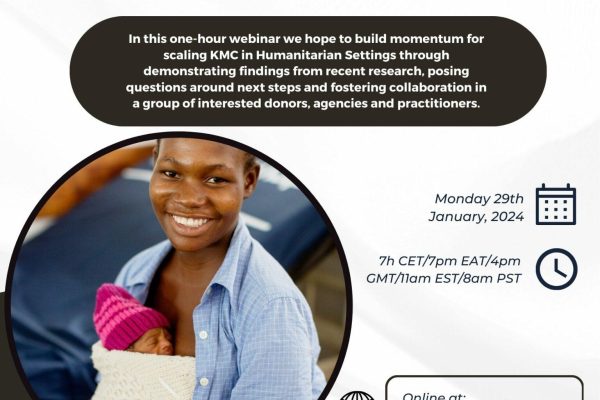In this one-hour webinar, the IAWG MNH SWG, the Van Leer Foundation, and Spring Impact built momentum for scaling KMC in Humanitarian Settings through demonstrating findings from recent research, posing questions around next steps and fostering collaboration in a group of interested donors, agencies and practitioners. A recording of the webinar can be found below.

